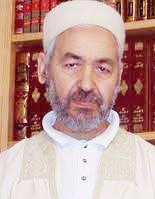TUNIS, (Reuters) – Tunisia’s moderate Islamist party yesterday claimed a thumping victory in the country’s first election, sending a message to the region that once-banned Islamists are challenging for power after the “Arab Spring”.

With election officials still counting ballots from Sunday’s vote — the first to follow as a result of the uprisings which began in Tunisia and spread through the region — the Ennahda party said its own tally showed it had won. Several of its biggest rivals conceded defeat.
Seeking to reassure secularists in Tunisia and elsewhere who see a threat to liberal values in the region, party officials said they would share power and would not try to push through radical measures.
“There will be no rupture. There will be continuity because we came to power via democracy, not through tanks,” campaign manager Abdelhamid Jlazzi said at party headquarters.
“We suffered from dictatorship and repression and now is an historic opportunity to savour the taste of freedom and democracy,” he said.
Shortly before he spoke, an Ennahda female candidate who does not wear the Islamic head scarf, or hijab, sang along to Lebanese and Tunisian pop songs on a stage. The party says her inclusion is proof of its moderate outlook.
In the only hint of trouble so far in the election, about 400 people protested outside the election commission building, alleging that Ennahda, led by the long exiled Rachid Ghannouchi, was guilty of vote fraud. The protesters, encircled by police, carried banners saying: “What democracy?” and “Shame on you, Ghannouchi!” Election officials say there were only minor violations and Western monitors applauded the election.
Ennahda, citing its own figures, said the election gave it 40 percent of the seats in the assembly which will draft a new constitution, appoint an interim government and set a date for new elections late next year or early in 2013.
That tally, if confirmed by the election commission counting the votes, would still require the party to form alliances with secularist parties if it is to have a majority. That is expected to dilute its influence.
The victory was the first in the Arab world for an Islamist party since Hamas won a 2006 election in the Palestinian Territories. The election result is likely to resonate in Egypt, which starts voting in November in a multi-stage election. An Islamist party which shares much of the same ideology as Ennahda is predicted to perform strongly.
Tunisia became the birthplace of the “Arab Spring” when Mohamed Bouazizi, a vegetable seller in a provincial town, set fire to himself in protest at poverty and government repression.
His suicide provoked a wave of protests which forced autocratic President Zine al-Abidine Ben Ali to flee to Saudi Arabia in January.
The revolution in Tunisia, a former French colony, in turn inspired uprisings which forced out entrenched leaders in Egypt and Libya, and convulsed Yemen and Syria — re-shaping the political landscape of the Middle East.
Only a trickle of official results has so far appeared — unlike votes under Ben Ali when the outcome was announced straight away, probably because it had been pre-determined.
Ennahda won half of the 18 seats allocated to Tunisians abroad. Of the four electoral districts inside Tunisia that have so far declared, it led the field in two and was joint winner in the other two, officials said late on Tuesday.
TURKISH MODEL
Ennahda’s leader Ghannouchi was forced into exile in Britain for 22 years because of harassment by Ben Ali’s police. A soft-spoken scholar, he dresses in suits and open-necked shirts while his wife and daughter wear the hijab.
Ghannouchi is at pains to stress his party will not enforce any code of morality on Tunisian society, or the millions of Western tourists who holiday on its Mediterranean beaches. He models his approach on the moderate Islamism of Turkish Prime Minister Tayyip Erdogan.





